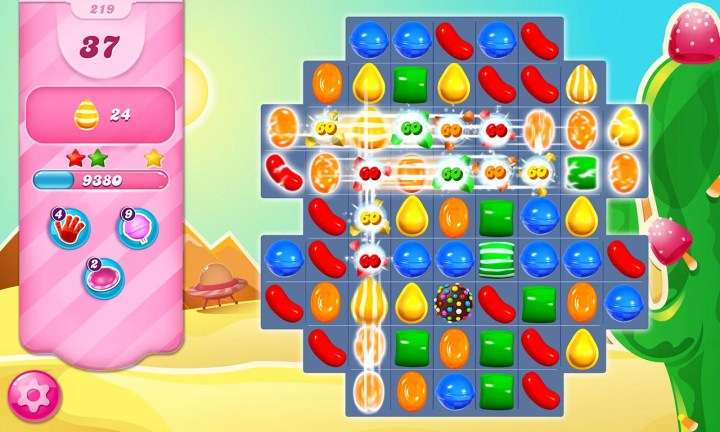One woman received £170,000 after becoming addicted to Candy Crush

The National Health Service (NHS) paid a six-figure compensation to an unnamed woman after she developed a crippling Candy Crush addiction after the side effects of a prescription drug impaired her impulse control.
The medicine (intended to treat restless leg syndrome and Parkinson’s) is in a class of drugs known as dopamine agonists. Dopamine is a neurotransmitter responsible for feelings of reward, and the artificial increase caused by these drugs can make someone seek out more of it — and that’s something mobile games excel at providing.
Small rewards, like opening a loot box, receiving a new item, or just finishing a level, all generate a boost of dopamine in the brain. Within weeks of her prescription, the woman began to “obsessively” play Candy Crush before progressing to virtual slot machine games.
Please enable Javascript to view this content
The NHS has since admitted that her general practitioner failed to warn her of the side effects and prescribed her a dose double the recommended amount. She has since been granted £170,000 (roughly $215,000) in compensation from the NHS.
This isn’t the first time a situation like this has arisen. Another man was prescribed the same medication, and then went on to lose more than £100,000 in online gambling. The NHS covered those costs.
No update has been given on how either of the two patients are doing. Suggested treatment to correct the loss of impulse control is a gradual reduction of the dosage before switching to a different type of medication, as well as other medications and Cognitive Behavioral Therapy.
Candy Crush isn’t to blame for the situation, but it does reveal the risks of games designed to hook the player in with rapid rewards — especially on individuals who are more susceptible to gaming addiction.
The World Health Organization has considered video game addiction a mental health disorder since 2013. Though numerous studies have been conducted, the results remain unclear as conclusions vary across different groups.



